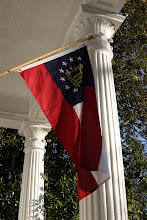
With all the things going on in D.C. these days, here are some things in the works that haven't been getting a lot of coverage.
Lawmakers Push For Speedier Tax Refunds
Give people their money. It's the rallying cry of lawmakers around the country pushing back against states that are delaying tax refunds to shore up their budgets. Holding on to the refunds allows states to use the money for other purposes, earn interest on it or simply wait until there's enough cash to cover the checks. But the cost can be an unhappy public.
"It's not the state's money, it's the people's money," said Missouri Rep. Jason Smith, R-Salem. "It's money they've overpaid to the state, and they deserve to get their money back in a prompt time."
Hawaii, North Carolina and New York are delaying refunds this year. Minnesota delayed some business tax refunds last year and may do so again. Alabama is waiting to send out millions of dollars in refunds until it has the cash.
Some lawmakers want to force money to be returned faster - even as their states face budget deficits and falling revenue.
Missouri delayed sending refunds last year to beef up its cash reserves. But a backlash from taxpayers has led Republican lawmakers to push legislation to stop it from happening again.
Right now, the state can hold tax refunds up to four months -- or until mid-August -- without paying interest. Legislation that has cleared the Missouri House would slice the grace period to a month and a half.
The Hawaii House also has endorsed a tighter deadline, which would require refunds to be issued three months after taxpayers file returns, rather than within three months of April 20, the state's filing deadline.
A bill already filed in the New York Assembly is aimed at preventing refund delays. Lawmakers justify it by pointing out that taxpayers usually don't get more time to pay the money they owe.
Creg Maroney of Pleasant Valley, N.Y., said he and his wife filed state tax returns more than a month ago and have not received the $1,600 they planned to put toward property taxes.
"I feel taken advantage of," said Maroney, a 40-year-old excavator and member of the anti-tax We The People Foundation. "I feel robbed."
Refunds are not legally due until June 1 in New York, so the state won't pay interest to taxpayers on delayed refunds, even though taxpayers face interest costs if they miss their April 15 filing deadline.
State officials say budget troubles have left them no choice. The Pew Center on the States estimated states have filled more than $300 billion in budget holes through a variety of methods since December 2007.
Matt Anderson, a spokesman for the New York governor's budget office, said the state lowered the maximum amount of refunds it would issue during the first three months of the year from $1.75 billion to $1.25 billion.
The remaining $500 million is to be released when the state's new budget year starts Thursday. New York plans to roll about $2 billion worth of expenses into next year's budget to make up its deficit.
"Clearly there are some taxpayers who view this as an inconvenience, and they're certainly correct," Anderson said. "The reason we have to take action like this is we are in dire circumstances."
In Hawaii, which faces a projected $721 million budget hole, Gov. Linda Lingle plans to hold on to $275 million by waiting to issue tax refunds for personal, corporate and fiduciary income taxes. State officials say by law they can hold refunds until July for those who file their returns on time and even longer for those who are late.
North Carolina stalled refunds last year and plans to do so again because tax collections remain weak.
"It's very much like the way a family manages their checkbook at the end of the month," Revenue Secretary Kenneth Lay said in February. "When you're writing those checks to pay your bills, you want to make sure that you have enough in the account to pay each one of them."
Even without proposed new deadlines from lawmakers, some states are adopting new strategies to avoid delays.
Missouri Gov. Jay Nixon plans to borrow $200 million from a pool of federal stimulus money. So far this year, Missourians who filed electronically have been issued refunds in an average of less than six business days. For paper filers, it has been less than nine days, though the averages are expected to rise, said Revenue Department spokesman Ted Farnen.
Kansas, meanwhile, has delayed state payments for public schools over the last five months to keep tax refund checks moving quickly.
Gov't Set To Ban Texting By Truck, Bus Drivers
The Transportation Department on Wednesday proposed a ban on text messaging at the wheel by interstate truck and bus drivers, following up on its call to reduce distractions that lead to crashes.
The proposal would make permanent an interim ban announced in January by Transportation Secretary Ray LaHood, applying to drivers of buses and commercial trucks over 10,000 pounds. The drivers could face civil or criminal penalties.
The proposal "keeps our commitment to making our roads safer by reducing the threat of distracted driving," LaHood said.
As navigation systems, cell phones and mobile electronics have become ubiquitous in cars and trucks, safety advocates and the government have pushed for restrictions. The Transportation Department reports that 5,870 people were killed and 515,000 injured in 2008 in crashes connected to driver distraction, often involving mobile devices or cell phones.
Trucking and bus industry officials support the texting ban and many companies already have policies in place against texting behind the wheel. The government prohibition doesn't apply to onboard devices that allow dispatchers to send text messages to truck drivers, but industry officials say most of the devices have mechanisms preventing their use while a truck is moving.
Clayton Boyce, a spokesman for American Trucking Associations, said his trade group was analyzing the proposal but has supported LaHood's efforts. "Texting while driving is a serious safety hazard, which is why ATA also supports texting bans for drivers of automobiles," he said.
Twenty states and the District of Columbia already prohibit all drivers from texting behind the wheel, according to the Governors Highway Safety Association. Another nine states restrict texting by novice drivers.
The government, industry and safety organizations have found common ground on texting and driving, concerned that typing out a message on a mobile device can take a driver's eyes off the road for a dangerous number of seconds.
Research by the Federal Motor Carrier Safety Administration shows that drivers who send and receive text messages take their eyes off the road for an average of 4.6 seconds out of every 6 seconds while texting. At 55 miles per hour, that means the driver is traveling the length of a football field without looking at the road.
Texting has grown exponentially in recent years and become a favorite form of communication among teens. The wireless industry association CTIA reported that the number of text messages sent by its members' customers increased from 32.6 billion in the first six months of 2005 to 740 billion in the first six months of 2009.
John Walls, a CTIA spokesman, said the group supports a ban on texting for all drivers: "Those are two completely incompatible behaviors - texting and safe driving."
The public has until May 3 to comment on the Transportation Department's proposed ban, and after reviewing comments the department can issue its new rule.
President Obama signed an executive order directing federal employees not to use text messaging while driving government-owned vehicles or with government-owned equipment, effective at the end of last year.
Congress has also shown interest in curbing distracted driving. Democratic Sens. Charles Schumer of New York and Robert Menendez of New Jersey have introduced legislation to urge states to pass laws banning texting by all drivers. The bill would reduce federal highway aid by 25 percent to states that fail to enact bans.
FAA Investigates Near Mid-Air Crash Over SF
Federal investigators are looking into the weekend near collision of a commercial jet and small airplane near San Francisco International Airport.
The Federal Aviation Administration is taking "strong measures to make sure something similar does not occur in the future" following Saturday's near-miss between United Airlines Flight 889 to Beijing, China, and a light-wing airplane, FAA spokesman Ian Gregor said. The National Transportation Safety Board also is investigating.
The closest the planes came to each other was 300 feet vertically and 1,500 feet horizontally, Gregor said. The United flight continued to Beijing with no further incident.
According to Gregor, air traffic controllers cleared the United flight, a Boeing 777 carrying 251 passengers, for takeoff at 11:15 a.m. and quickly spotted the Cessna 182 flying south.
The controller radioed both planes' pilots, Gregor said, and the jet's automatic traffic collision avoidance system alerted its pilots of the small aircraft approaching, causing them to level the jet's climb.
"The Cessna pilot reported that he had the 777 in sight, and adjusted his path to maneuver above and behind the 777," Gregor told The Associated Press in an e-mail.
United spokeswoman Robin Urbanski said the airline is fully cooperating with the investigation and that it reported the incident to NTSB. She said this kind of near, mid-air collision is "unusual" for United.
Gregor said the controller should have noticed the Cessna earlier, but noted that the pilots were quickly contacted once the situation was recognized.
David Caldwell, union representative for the National Air Traffic Controllers Association at the SFO tower, had no immediate comment on the investigation.
"We have to go through a process to make a fair evaluation of what happened, and if we need to fix something, we fix something," Caldwell said.
Gregor said the FAA does not keep statistics on near misses, and that they are reported by pilots. However, he said misses this close are rare and need to be properly scrutinized.
NTSB spokesman Peter Knudson said its investigation could take three to 12 months.
"If we determine at any point in the investigation that there was a serious safety issue ... we can issue safety recommendations," Knudson said.
US House of Representatives; We The People Foundation; The Wall Street Journal; US DOT; American Trucking Association; Governors Highway Safety Association; Federal Motor Carrier Safety Administration; CTIA; NTSB; FAA; Valerie Bauman in Albany, N.Y., and Gary D. Robertson in Raleigh, N.C., contributed material for this report.
 The wife of former baseball star Curt Schilling has written a book about raising a child with Asperger's syndrome, WCVB-TV in Boston reported.
The wife of former baseball star Curt Schilling has written a book about raising a child with Asperger's syndrome, WCVB-TV in Boston reported.  In chapter after chapter, those feelings were eye opening for the man she'd been married to for nearly 18 years. Curt said that was the hardest part for him about reading his wife's book.
In chapter after chapter, those feelings were eye opening for the man she'd been married to for nearly 18 years. Curt said that was the hardest part for him about reading his wife's book. 










































